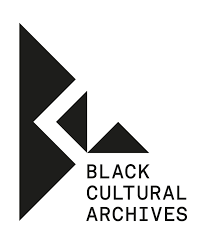
‘DEFEND YOURSELF, UNITY IS STRENGTH’
THE BRIXTON DEFENCE CAMPAIGN (1981-1985)
Impact
The efforts of the Brixton Defence Campaign, the Brixton Legal Defence Group and other legal representative groups helped to undermine and expose State attempts to incriminate and imprison Black youths. The Brixton Defence Campaign stated that many of the charges against Black youths were ‘trumped-up...to disguise the fact that while the uprising was taking place, the police were in no position to make arrests, or to 'police’, and had these cases thrown out. The Brixton Defence Campaign’s intervention into the State criminalisation of Black youths was essential. Though unsuccessful in having all defendants acquitted, the campaign, alongside other organisations, successfully argued for a reduction in jail sentencing for some of the defendants. They also managed to stop deportation of some defendants in the aftermath of the uprising.
Through independent investigation, the Brixton Defence Campaign also discovered that published figures by the Metropolitan Police grossly underrepresented the number of people who were stopped and searched in its ‘Swamp 81’ operation four days before the April Brixton unrests. The campaign found that over 2,000 people were stopped and searched (contrary to the police figure of 943) before the April uprising and that 95 per cent of those stopped in Lambeth ‘were absolutely innocent people.’ The Brixton Defence Campaign also found that a third of those arrested were under seventeen years of age, signifying that the Metropolitan Police force were fixated on criminalising Black youth. The Brixton Defence Campaign concluded that ‘Swamp 81’ ‘was a racist operation [because] most of the people stopped were Black.’
[Image-MCKENLEY/3/1: 'Brixton Defence Campaign Bulletin No.4]
Through independent investigative research, the Brixton Defence Campaign underscored how race, racism, and histories of colonialism and imperialism dictated the actions of the courts, police, State institutions and press: resulting in the criminalisation and imprisonment of Black youths after the Brixton uprising. The campaign believed the Scarman Inquiry did more harm than good, and with help of the Brixton Defence Campaign many Black people rejected it. Since the publishing of the Scarman Report in 1981, Black communities in Britain have remained speculative of State-funded and controlled enquiries into significant matters impacting them and their communities.
In April 1982, the Brixton Defence Campaign organised its first National Conference on the anniversary of the April 1981 uprising. In 1983, it hosted its second National Conference at the Abeng Centre to commemorate and highlight the significance of the 1981 Brixton uprisings. The 1983 conference primarily focused on policing and the contentious Police and Criminal Evidence Bill, which became law in 1984: with subsequent mandates, the bill extended police powers and reinforced 'riot' legislation.
By the mid-1980s, the Brixton Defence Campaign disbanded, and many of its members continued doing activism work in other organisations to combat racism across the country. Recent anti-racist organisations, such as the Black Lives Matter and Black-British grassroots movements, can learn from the Brixton Defence Campaign regarding the importance of coalition building, staying power and conducting independent research to support their cause. Current organisations can also draw on Britain’s broader histories of resistance and coalition movements in the twentieth century, of which the Brixton Defence Campaign is a part, to trace the longer threads of the ‘hostile environment’ before the 2018 ‘Windrush Scandal’, providing opportunity for solidarity amongst the least unexpected groups.
This introduction to the work of the Brixton Defence Campaign reminds us that whatever we do, ‘Unity is Strength’.


